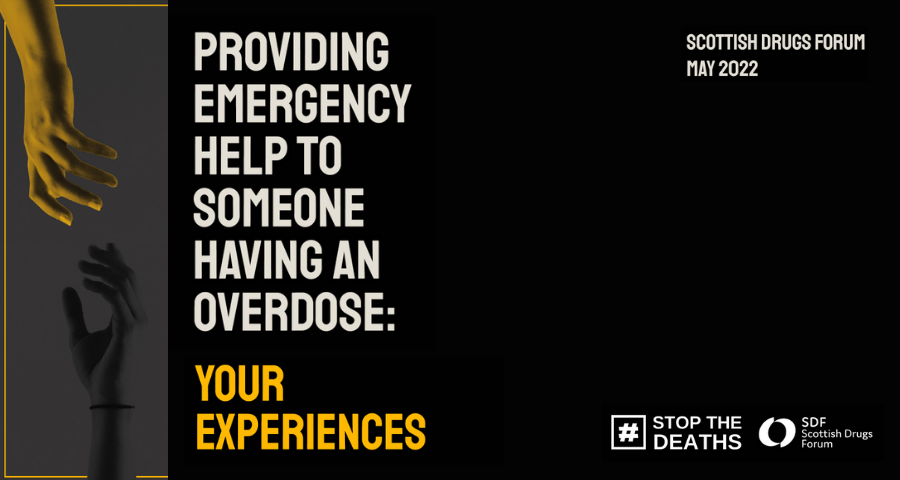20 May 2022
A new report describes the experiences of people who have given assistance to someone who presented as having an overdose and explores their subsequent support needs.
Providing emergency help to someone having an overdose: your experiences is based on the survey responses of 285 people who have provided emergency help. This included support workers, healthcare professionals, emergency services workers, family members, and members of the public.
Respondents completed an online survey about their interactions with emergency services, the use of naloxone, the support they received, and were also asked about what support would be helpful.
The paper’s recommendations, based on these responses, highlight the need for more people to be trained to use naloxone, as well as the need for an increase in availability of the opioid overdose reversal drug.
Other recommendations include the development of near fatal overdose pathways – which would mean people who had experienced an overdose could promptly be offered help by services to reduce the chance of this happening again, and better training for emergency call handlers. The latter recommendation was based on the findings that some call handlers gave advice that conflicted with emergency response advice included in their naloxone training.
Attention is also paid to the attitudes and approaches involved in providing emergency help to someone experiencing an overdose. Emergency responders are encouraged to view people experiencing an overdose as vulnerable people requiring immediate support. This is as part of the effort to reduce stigma.
The study also underlines the importance of support being provided to those who have intervened in overdose situations. Due to the trauma sometimes experienced by those who have provided help, particularly family members, support in the form of having someone to speak to, to reflect on and process the experience, is among the recommendations.
Author of the report, researcher Martin Anderson, reflects:
“This is the first time people offering assistance – sometimes involving naloxone administration – have been surveyed nationally in an opt-in survey. There was a high response which may reflect concern people have about the support people in overdose are given, the support given to people during their intervention to help and subsequently what aftercare the person giving support may get.
“It is clear that for some people this is an emotional situation and that the impact of that can remain after the incident is over. Naloxone administration by workers in communities, family, friends, and members of the public is a crucial part of the National Mission to Reduce Drug-related Deaths and we need people to feel confident and supported in carrying naloxone, administering it, contact emergency services, and in seeking another supply.
“This survey will give services and policy makers the information they need to build that confidence and support.”
Training in overdose prevention and the use of naloxone is available through SDF’s e-learning resources. This short course teaches how to identify and respond to an overdose and demonstrates how to administer naloxone. Find links to the course and a contact from which you can order a naloxone kit here.

